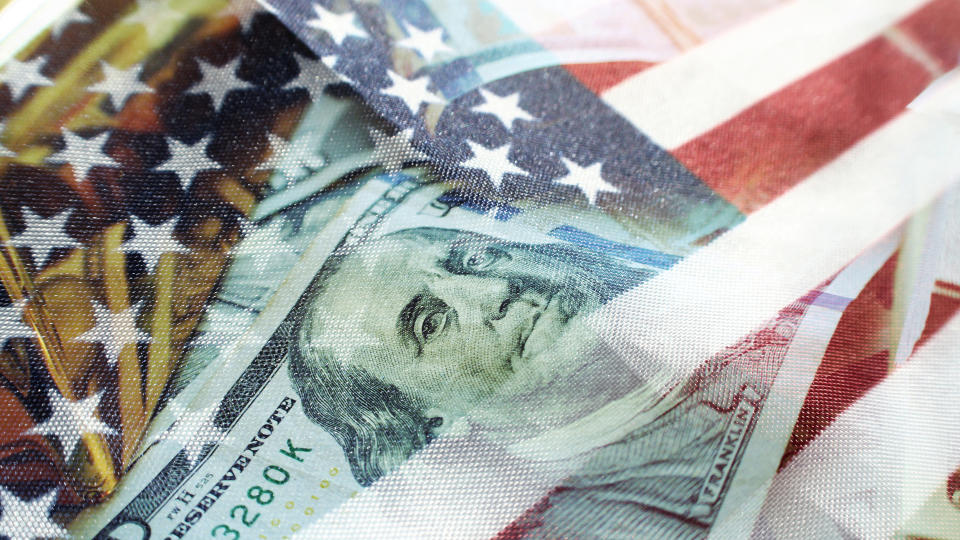4 Key Expenses That (Probably) Won’t Go Down No Matter Who Is Elected President

Inflation is currently at 3.3%, according to the latest Consumer Price Index (CPI) data released June 12, and it has been taking an enormous toll on American consumers. With presidential elections around the corner, could some key expenses finally go down depending on the November winner?
Check Out: Here’s How Much the Definition of Middle Class Has Changed in Every State
Read Next: 4 Genius Things All Wealthy People Do With Their Money
From the price of groceries to that of gas and housing, Americans are feeling the pinch at every corner. In fact, 78% of them rate the U.S. economy overall as poor or fair, with a whopping 80% citing inflation as the main driver of this sentiment, according to a recent Nationwide Retirement Institute survey.
Against this backdrop, are there some key expenses that might still not go down no matter who is elected president? If so, what factors are at play?
Jeffrey A. Rosenkranz, portfolio manager at Shelton Capital Management, said that the good news is that most components of inflation are either moderating from supply side constraints during the pandemic, or from the natural course of the business cycle and basic economics where supply and demand come back into balance over time.
“However, there are a few exceptions where secular trends or other inelastic supply or demand curves are the cause, and no matter which candidate is elected in November, neither may be able to influence these trends to bring down prices in these areas anytime soon,” he said.
Other experts echoed the sentiment, such as Matt Colyar, economist at Moody’s Analytics:
“Success is a slow growth rate like 2% year-over-year,” he said. “Declines in price levels for some things, like gas, are normal. Broad-based declines in prices mean an economy is shrinking. This is a scenario central bankers try very hard to avoid.”
Wealthy people know the best money secrets. Learn how to copy them.
1. Food
In terms of food away from home, the recent push higher in state minimum wage laws (particularly the California $20 level), is pushing labor costs higher, especially in fast food and casual restaurant dining, according to Rosenkranz:
“Food prices have been moderating, and food at home in the CPI has shown this trend, but food away from home index has diverged and remained stubbornly high on account of the labor cost component. Neither Biden nor Trump would likely be able to override state level labor laws to bring unskilled labor costs down.”
Additional factors for food inflation can also be the result of several events, explained Colyar. For instance, for farmers and factories, diesel fuel is a really important input — and volatility in energy markets can push food prices up or down, he said.
“We expect a pretty calm rest of the year, though ruptures in energy markets or significantly more damaging weather could push up grocery prices,” he noted.
2. Housing
As Rosenkranz noted, there has been a chronic underinvestment in new home construction since the Great Financial Crisis, and housing stock has not kept up with household formation.
In turn, he said, even if interest rates head lower and take mortgage rates down with them, there will be an important component of housing that will be stubbornly high.
“And neither presidential candidate can spur a sufficiently large and rapid increase in home construction to make a meaningful near-term impact,” he added.
Shelter prices were up 5.4% over the past year in May, according to CPI data
3. Insurance
There is a slew of insurance rates that might not go down regardless of the winner, for instance, homeowners’ insurance.
“The increasing prevalence of severe storm activity and wildfires is pushing homeowners’ insurance rates higher,” said Rosenkranz. And even if prices for building materials come down, the frequency of losses cannot be influenced in a short period of time by either candidate, he added.
4. Healthcare
Healthcare will continue to creep up, said Colyar, noting that this is a large part of U.S. households’ spending, particularly older Americans.
“It is also one of the few components where we expect stronger inflation in 2024 than 2023, though that acceleration is from a pretty mild increase in 2023,” he said.
As he explained, healthcare prices are often agreed to with insurers far in advance. This means when input costs rise, it takes more time to flow through into consumer prices than it would in other industries.
“Famously, healthcare networks struggled to attract and retain staff in the immediate aftermath of the pandemic,” he said. “To do so, they of course raised pay. This is still flowing through to consumer prices in a way that restaurants, who also dealt with worker shortages, already digested.”
Which Key Expenses Might Go Down?
On the other hand, experts anticipate some expenses to go down, such as vehicle prices, which some expect to continue moderating.
“Demand is softening and production volume has recovered fully,” said Colyar, noting that insurance prices, finally, are beginning to ease. “May’s decline in the CPI for motor vehicle insurance was welcome. It suggests the increased amount of money insurers were paying out for claims, because of the rapid increase in vehicles, has come into better balance.”
In addition, he noted that mortgage rates should slowly ease, thanks to the Fed’s anticipated rates, he also believed it to be a slow process, which also hinged on whether inflation ticks back up.
“None of these components are immediately sensitive to who wins the election. Of course, other policies that re-ignite inflation would cause the Fed to tighten policy again and mortgage rates would rise,” he added.
More From GOBankingRates
This article originally appeared on GOBankingRates.com: 4 Key Expenses That (Probably) Won’t Go Down No Matter Who Is Elected President

 Yahoo Finance
Yahoo Finance 